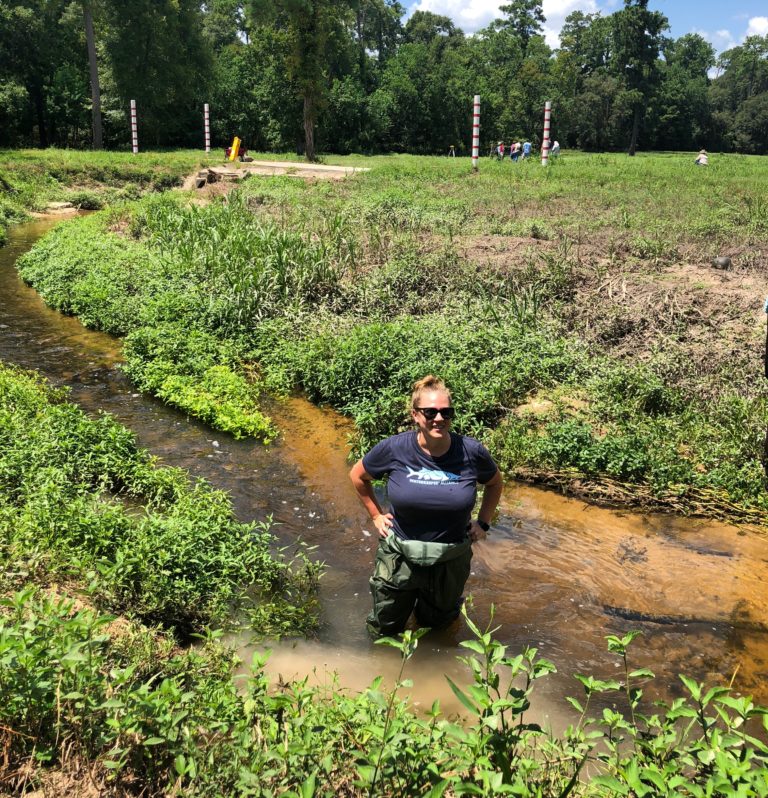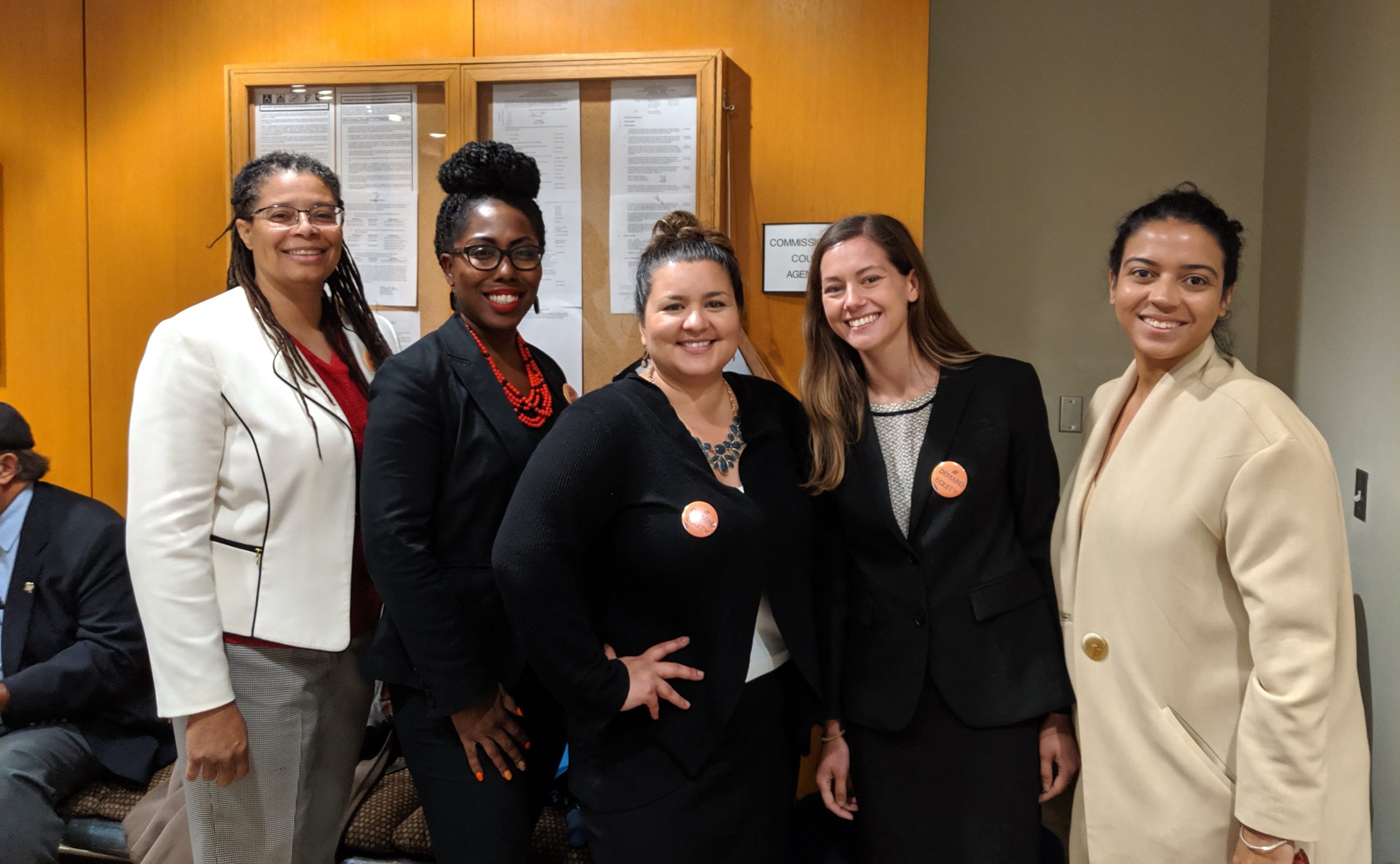Bayou City Waterkeeper Advocates for Flood Planning “Rooted in Equity”
By: Julia Widmann

In Houston, residents already feel the climate crisis’ impact. The low-lying city faces threats of sea level rise, storms of increasing strength and frequency, and overuse of underground freshwater is causing the city to sink—a process known as subsidence. These impacts are disproportionately felt by communities of color, immigrants, and generally those with fewer means to recover from destructive floods and storms.

Bayou City Waterkeeper Jordan Macha’s first day on the job was shortly after Hurricane Harvey struck land in 2017. Since then, Jordan, along with Kristen Schlemmer—Bayou City Waterkeeper’s legal director, has worked for smarter and greener flood planning and management in Houston, highlighting wetland protection and restoration and other nature-based solutions.
While Houston may be the most diverse city in the United States, it’s also one of the most segregated. This has lead to historic inequities in municipal services in high-poverty, Hispanic, and Black communities across the region. When flooding occurs, these neighborhoods become significantly more vulnerable and face greater damage—much more so than wealthier, and whiter, areas. Encouraging Houston and Harris County to address the long-standing discrimination, Bayou City Waterkeeper has partnered with environmental justice and housing justice organizations like the Coalition for Environment, Equity, and Resilience (CEER), the HOME Coalition, and Texas Housers to #DemandEquity in flood and resilience planning.
Bayou City Waterkeeper’s legal intern, Rosa Acheson, spoke in court on June 25 to emphasize the importance of equitable flood planning that prioritizes communities who’ve previously been ignored. The Harris County Commissioners’ Court—which includes the City of Houston—is considering fast-tracking the use of a $2.5 billion bond on flood control projects, which was approved by voters last year. Rosa spoke on behalf of Bayou City Waterkeeper; she joined Iris Gonzalez on behalf of CEER, Chrishelle Palay on behalf of the HOME Coalition, Dr. Earthea Nance, and Zoe Middleton on behalf of Texas Housers to advocate for holistic equity for all residents, and discouraging expediency for its own sake.
“Resilience in Harris County requires the Commissioners’ Court to do at least two things: First, make sure all flood planning is rooted in equity. This means Harris County must prioritize those communities who have historically received little to no water management projects or programs, and provide them with the same level of flood protection as others who have received greater levels of service. The county must ensure that Flood Control has enough time to make intentional and inclusive decisions that benefit all residents.”
Rosa went on to explain the benefits of nature-based solutions such as wetland restoration and green infrastructure. Learn more—and read Rosa’s statement in full—in Bayou City Waterkeeper’s blog, Equity and Nature-Based Solutions Needed in Flood Bond Projects.
